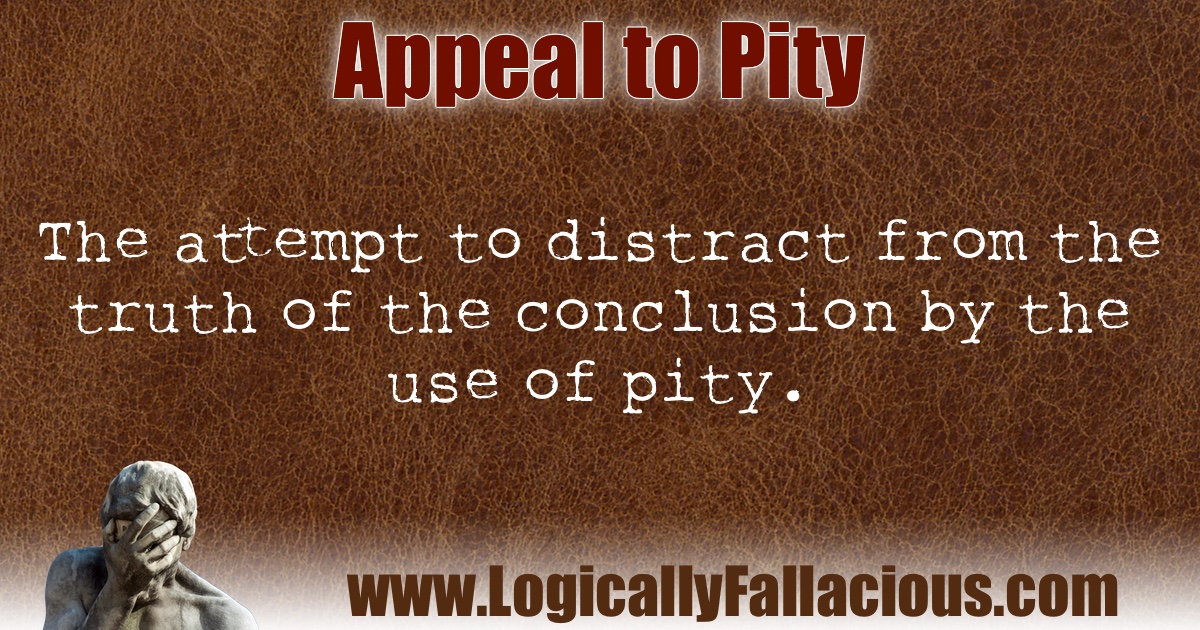ad misericordiam
(also known as: appeal to sympathy, appeal to victimhood [form of])
Description: The attempt to distract from the truth of the conclusion by the use of pity.
Logical Forms:
Person 1 is accused of Y, but person 1 is pathetic.
Therefore, person 1 is innocent.
X is true because person 1 worked really hard at making X true.
Example #1:
I really deserve an “A” on this paper, professor. Not only did I study during my grandmother’s funeral, but I also passed up the heart transplant surgery, even though that was the first matching donor in 3 years.
Explanation: The student deserves an “A” for effort and dedication but, unfortunately, papers are not graded that way. The fact that we should pity her has nothing to do with the quality of the paper written, and if we were to adjust the grade because of the sob stories, we would have fallen victim to the appeal to pity.
Example #2:
Ginger: Your dog just ran into our house and ransacked our kitchen!
Mary: He would never do that, look at how adorable he is with those puppy eyes!
Explanation: Being pathetic does not absolve one from his or her crimes, even when he or she is a ridiculously-adorable puppy.
Exception: Like any argument, if it is agreed that logic and reason should take a backseat to emotion, and there is no objective truth claim being made, but rather an opinion of something that should or should not be done, then it could escape the fallacy.
Let's not smack Spot for ransacking the neighbor's kitchen—he's just too damn cute!
Variation: The appeal to victimhood uses a form of pity to either establish the innocence of the victim or suggest the victim has the truth on their side. This is an application of the halo effect, where victims tend to be seen positively, therefore that which is associated with the victim (e.g., their innocence, or their claims) is also seen as positive (unreasonably and without evidence).
Tip: Avoid pity in argumentation. It is a clear indicator that you have weak evidence for your argument.
